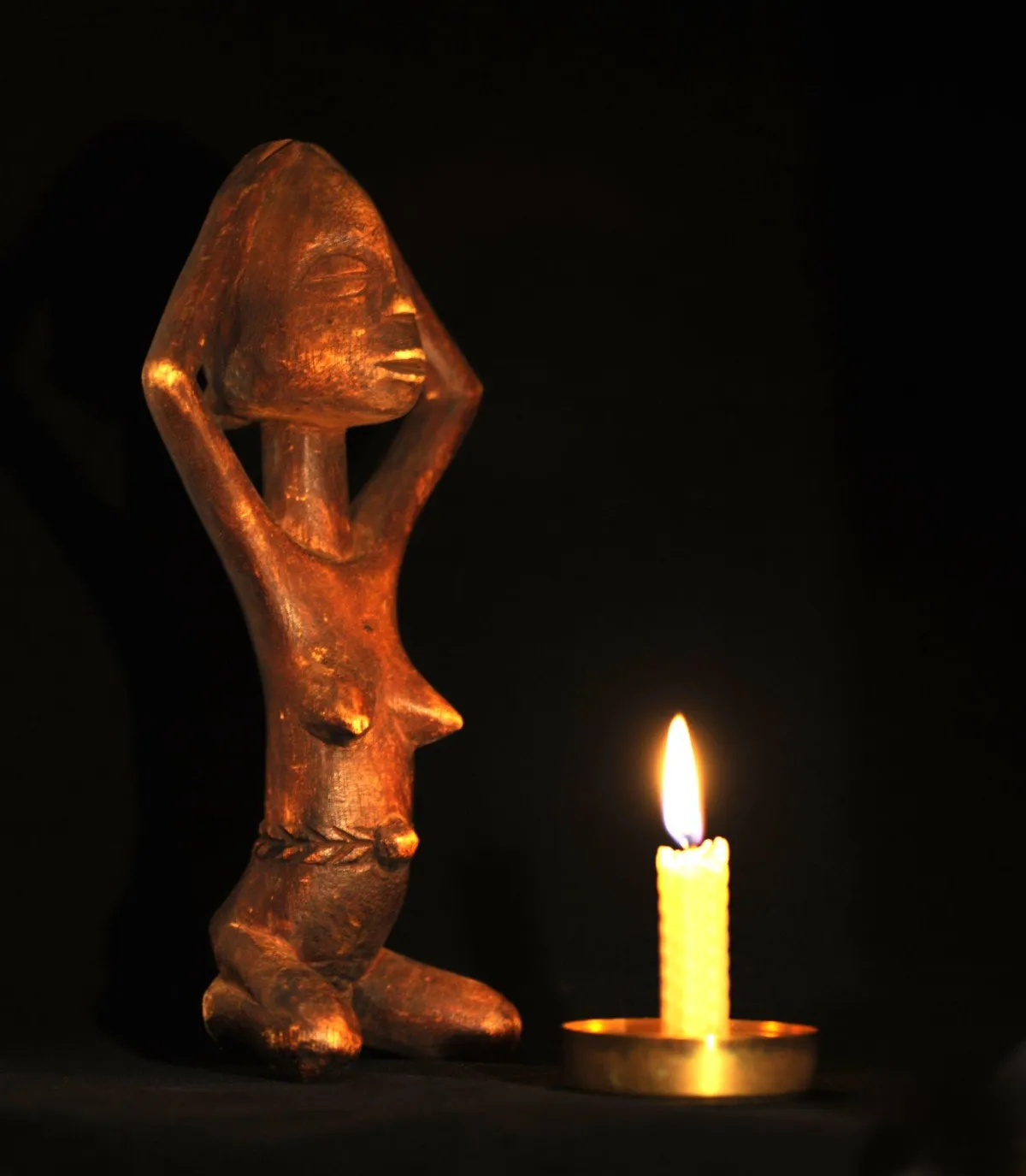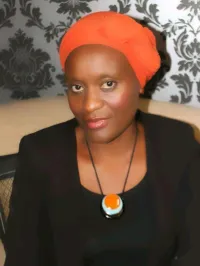Blog
How we think about mental health impacts our well-being. In these pages I offer my perspective - an African-centered, black-centered view of us and of what makes us well. an alternative path to healing both the personal and the collective.

Demystifying African Spirituality
“Intuitively, there is a fear of the spiritual, the cultural, and the political power that these rituals can have. That us coming together and performing libation together - they know that there is power in that act. And so, if they can make us feel ashamed of that and that there is something wrong with it, they are weakening us and cutting us off from our source of power.” - Dr Marimba Ani
What is spirituality?
Spirituality is a belief in the Spiritual. It is a belief in the unseen, the non-physical part of the Universe. A belief that there is a physical part to us and the world, and a non-physical, invisible one that is far greater and more important than the physical part, because it is from it that physical life springs, grows and flourishes. In this belief system the spiritual aspect of the world is seen as the root of life, a force that supports life here in the physical world. In other words, spirit precedes matter.
What is African Spirituality then?
African spirituality, then, refers to the collection of ways in which African cultures and Peoples relate to the Spiritual. It refers to the philosophies and beliefs behind it as well as the practices and rituals that give expression to that relationship.
The Current State of African Spirituality
African forms of spirituality are currently not being openly practiced by the majority of Africans either in the continent or among its diaspora (I use the terms African and diaspora in the broadest sense of the words, which includes descendants of the Africans taken from the continent for the purpose of providing free labor under conditions of enslavement). There is still deep fear and shame associated with practicing African spirituality, which stops people from embracing it even when they yearn for it. This pushes the practice of African spirituality underground and into the hands of those with the least noble intentions, thus reinforcing the negative stereotypes that have plagued it since the first Europeans set foot on African soil. It also reduces African spirituality to trickery, charlatanism and ‘dark magic’. But African spirituality is, like any other system of spirituality found in other cultures around the world, simply a system of relating to the spirit world for strength, personal power, and healing.
This current state of affairs is a direct result of colonization. Part of the process of colonization was to gain control of people’s minds and cut them off from their source of spiritual solace and power in order to dominate them. There was a deliberate campaign to denigrate anything African and spirituality was especially targeted. Efforts to demonize, Satanize and associate African spirituality with backwardness created a stigma that prevails until today, alienating us from this important cultural resource. The result of this alienation from our own spiritual traditions on such a mass level is that we are disconnected from who we are and cannot find solutions for our own problems.
Many Africans today who long for spiritual connection but do not embrace the religions brought to us by our oppressors have for a long time felt spiritually disenfranchised. I believe that the time has come for us to remove the barriers that stand between us and our authentic spirituality, for us to openly embrace it and tap into the power that is available to us through it – the power to heal, the power to restore our dignity as a people, the power to create a future for ourselves and for humanity that is beyond anything we can imagine in our current state of spirit.
The fear of African religion must itself be understood as a form of trauma that needs to be healed, as it is the result of sustained violent actions overtime which aimed at disconnecting us from it. The effects of that violence on our Ancestors has been passed on to us both genetically and through socialization and we are still trying to stay safe and be considered good enough people by distancing ourselves from our spiritual traditions (read this blog post for more on intergenerational trauma). The good news is that many of us are indeed returning to our ancestral spiritual home and, in this way, beginning to heal the personal as well as the collective.
While it is perfectly legitimate for anyone to choose the religion or spiritual practice that best suits them, it is also important that, if we feel the call of our own roots, we are not deterred from it by the heavy stigma that shrouds it and go for something that is second best and unsatisfying just because it is approved of by society.
Getting Started on Your African Spiritual Journey
Are you one of those people who has felt the call to your ancestral spiritual roots but is scared to go down that path or just doesn't know where to start? If so, I hope this article has begun to take the fear out of it and given you some clarity on what African spirituality really is. I hope too, that it has given you the courage to look more into it, to allow your inner calling to unfold, because African spirituality is your birthright.
If you want to delve deeper into African spirituality, I highly recommend this Home Study Course by Ancestral Voices. AV is a platform dedicated to education on African spirituality. Their work is based on research they conducted over more than a decade and the result has been a multitude of educational materials that are guiding many people of African descent in returning to their spiritual home.
To be clear, I advocate the return to African spirituality for Africans and people of African descent; not as a fad or a commodity to be sold to curious, lost, and misguided Westerners who will add it to their collection of exotic spiritual philosophies, appropriate it, then move on to the next thing. This is about reconnecting to our own source of power and alignment.
Copyright © 2024 Yema Ferreira, All rights reserved.
